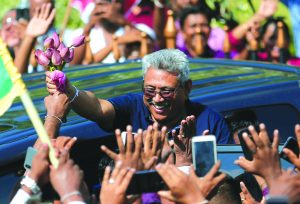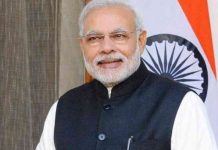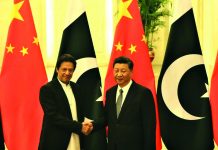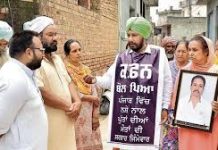 Indian diplomacy is faced with a fresh challenge after the change of guard in its immediate neighbourhood — Sri Lanka. The November 16 presidential election there has resulted in the dominant Rajapaksa clan recapturing power in the Sinhala-majority 21.6 million strategically located island-nation.
Indian diplomacy is faced with a fresh challenge after the change of guard in its immediate neighbourhood — Sri Lanka. The November 16 presidential election there has resulted in the dominant Rajapaksa clan recapturing power in the Sinhala-majority 21.6 million strategically located island-nation.
Gotabaya Rajapaksa, elected the new President of Sri Lanka, was the country’s Defence Secretary when his elder brother, Mahinda Rajapaksa, was the President between 2005 and 2015. The former played the decisive role in neutralising the Liberation Tigers of Tamil Eelam (LTTE) in 2009. This made him the most adorable political figure in the country as the LTTE had virtually paralysed Sri Lanka by indulgingin large-scale terrorist activity in the name of safeguarding the interests of the Tamils, who trace their roots to India’s Tamil Nadu.
During the final years of the 37-year-long civil war in Sri Lanka, Mahinda Rajapaksa and Gotabaya were accused of having adopted a ruthless policy, indulging in open human rights violations, to achieve victory over the LTTE, their ultimate goal. Yet they have been treated as the saviours of their country. Now the people have recognised the role of the Rajapaksas in the best way they can — giving them their whole-hearted support during the just concluded elections.
Sri Lanka Freedom Party-backed Gotabaya of the Sri Lanka Podujana Peramuna (SLPP) defeated with a comfortable lead all his political rivals — Sajith Premadasa of the United National Party (UNP), Anura Kumara Dissanayaka of the Janatha Vimukthi Peramuna-led political alliance called the National People’s Power and ex-Army chief Mahesh Senanayake of the National People’s Movement.
What tilted the balance decisively in favour of Gotabaya was Easter Sunday’s terrorist bombings, killing nearly 260 persons, despite India having provided credible intelligence to Colombo well in time. The killings, believed to be the handiwork of the Middle-East-based ISIS, convinced the people that their country must have a government that can ensure their security under all circumstances. This reminded them of their worst days when the country was in the grip of a civil war caused for over three decades by the activities of the LTTE.
The presidential election, however, in a way divided the country between the Sinhala Buddhist majority population on the one side, fully supporting Gotabaya, and the Tamil and Muslim minority casting their vote against him. That is why both sections are reportedly feeling uneasy. They are bound to be targeted in case there are incidents of terrorist violence even caused by elements having no support from these communities.
During Mahinda Rajapaksa’s rule, the judiciary of Sri Lanka was under tremendous pressure to decide cases keeping in mind the interests of the Rajapaksa clan and their government. Other constitutional institutions were also losing their credibility. But this factor appears to have had no effect on the outcome of the presidential polls.
Between 2005 and 2015, most key positions in the government were occupied by members of the Rajapaksa clan with Mahinda Rajapaksa as the President, Gotabaya as Defence Secretary, Basil as in-charge of economic departments and Chamal as Speaker of Parliament. The country’s power structure was entirely under the tight grip of the Rajapaksas. The same situation may prevail again with slight variations. But today people seem to have no interest in such things. Through their verdict they have shown that security is their major concern.
The Rajapaksas, despite all kinds of allegations against them, never expected to lose power when the 2015 presidential election was held. They had tasted unexpected defeat and accused India of intervention in the polls when the two principal political parties, the Sri Lanka Freedom Party and the United National Party, came together to wrest power from the then President, Mahinda Rajapaksa and his camp followers.
However, Maithripala Sirisena, then sworn in as the President, and Ranil Wickremesinghe, who became the Prime Minister, could not provide a government which could win them the confidence of all sections of the population. Their differences of opinion on various issues came into the open disparaging the image of the government.
This explains why Gotabaya could defeat his opponents without much difficulty. Mahinda Rajapksa, who has taken over as new Prime Minister, may again run the country with an iron hand as he did in the past as President. His previous decade-long-rule till 2015 allowed China to make deeper inroads in that country. China found an opportunity to invest in different areas there liberally. India was treated in a love-hate manner.
This time, however, when Mahinda’s younger brother Gotabaya is in the commanding position, Sri Lanka is unlikely to be governed as was seen in the past. The new political dispensation is expected to give India its due as Sri Lanka’s neighbour having historical relations.
Till now India has been playing its card quite pragmatically. External Affairs Minister S. Jaishankar visited Colombo as the first foreign dignitary to greet Gotabaya as Sri Lanka’s new President soon after he took the oath of office. He happily accepted Prime Minister Narendra Modi’s invitation, delivered by Jaishankar, to visit India on a nearest possible date, which has been made public as November 29.
Earlier, Modi had telephonically congratulated Gotabaya on his electoral victory, when the later expressed his desire to work with India for better a security environment in the region as also for ensuring faster development in the two countries.
There is no point in digging the past when the two brothers ran a regime which inflicted indescribable atrocities on Tamils on suspicion of being LTTE supporters. It is alleged that around 40,000 Tamil civilians were eliminated by Sri Lank’s security forces in their drive to destroy the LTTE root and branch. It is wiser to keep the bitter memories aside and move on.
Improved India-Sri Lanka relations would work as a deterrent to make the new regime in Colombo not to repeat its past mistakes in the interest of security and development in the island-nation. Sri Lanka’s renewed confidence in building new bridges of understanding with India may also decrease its interest in China, which has been working for a few years to encircle India with its massive military presence in the region as its well-known policy of creating a string of pearls.
China’s latest gift to Sri Lanka, a 2300-tonne warship delivered in July, shows how deeply Beijing has been involved in strengthening its military and other kinds of relations with Colombo. The strategically located country has been according greater importance to increasing the fighting capability of its navy as Colombo’s naval forces played the most crucial role in making the LTTE a thing of the past. India, too, last year gifted an offshore patrol vassel (OPVs) to Colombo in addition to supplying it two OPVs in 2006 and 2008 free of cost.
The Sri Lankan navy has around 50 combat support ships and inshore patrol craft mostly supplied by the US, India, China and Israel. The time has come for India to see that it remains ahead of other nations in taking care of military and other needs of Colombo.
letters@tehelka.com












